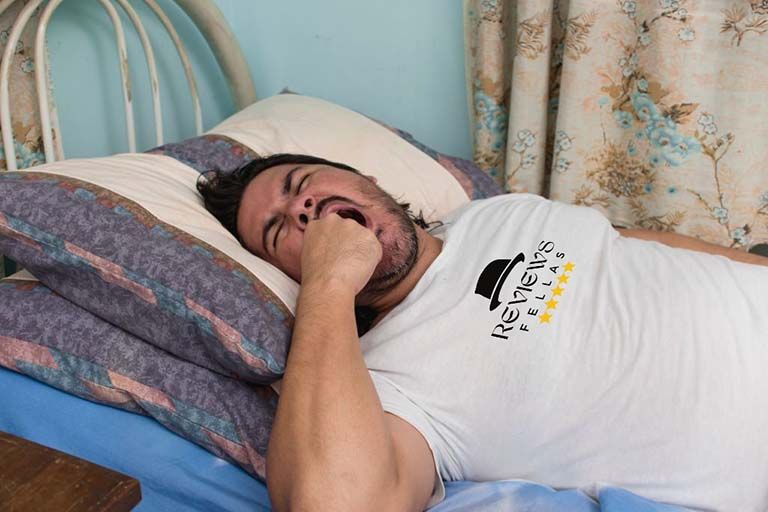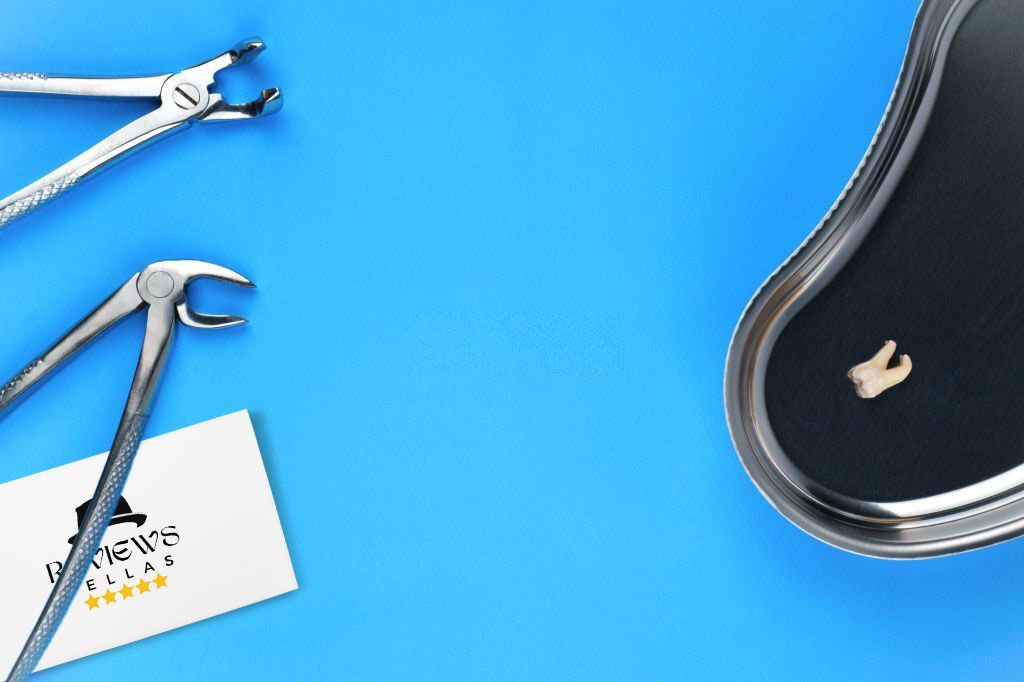This article is reviewed, corrected, and approved by: Dr. Joshua Collins M.D. | MRCP। FRCP
The wisdom teeth, or third set of molars, typically surface during the later teenage years or early adulthood, marking the final stage of dental development. Although not always problematic, these teeth can cause a multitude of oral health issues for many individuals. As a result, many dentists recommend their removal to prevent further complications.
While the extraction of wisdom teeth may seem like a simple and common procedure, it's essential to understand the potential disadvantages that come with it. Here, I will shed light on the disadvantages of removing wisdom teeth, including common complications, risks associated with anesthesia, and potential long-term side effects.
We'll also discuss some of the less talked about downsides, such as the cost of the procedure and the discomfort that comes with the recovery process. The ultimate objective of this article is to give you a thorough grasp of the advantages and disadvantages of having your wisdom teeth removed and to empower you to make informed decisions about your dental health.
The Disadvantages of Removing Wisdom Teeth

Removing the third set of molars (wisdom teeth) is a common dental procedure. While it is often done to alleviate pain and prevent future dental problems, there are several disadvantages associated with this procedure. Let's examine some important disadvantages of wisdom tooth removal in more detail.
Pain and Discomfort
One of the most significant drawbacks of removing wisdom teeth is the pain and discomfort associated with the procedure. During a few days following surgery, patients could have discomfort, edema, and bruising at the surgical site.
It could be challenging to talk, eat, and carry out other everyday tasks as a result. Patients may need to take pain medication, apply ice packs to the affected area, and rest to alleviate the discomfort.
Risk of Infection
Another disadvantage of removing wisdom teeth is the increased risk of infection. The surgical site is vulnerable to bacteria and germs, which can cause an infection if proper care is not taken.
If an infection occurs, patients may experience symptoms such as fever, swelling, and pus or discharge from the surgical site. In severe cases, an infection can lead to more serious complications, such as sepsis.
Nerve Damage
In rare cases, the removal of wisdom teeth can cause nerve damage. This can happen if the nerve that runs through the lower jaw is damaged during the procedure.
Patients may experience numbness, tingling, or even paralysis in the tongue, lips, or chin. This can have a long-term impression on a patient's lifestyle, hindering their ability to eat, perform activities or speak.
Sinus Problems
Removing upper wisdom teeth can also lead to sinus problems. This is because the roots of these teeth are often located close to the sinus cavity.
If the tooth is removed improperly, it can cause a hole in the sinus cavity, leading to sinus infections, congestion, and pain. This can be a long-term problem for patients, requiring additional treatment to address.
Cost
Wisdom tooth removal can be a costly procedure, especially if complications arise that require additional treatment. Some insurance plans may not cover the entire cost of the procedure, leaving patients with a significant out-of-pocket expense. Patients should consider the potential cost of the procedure and their insurance coverage before deciding whether to remove their wisdom teeth.
Dry Mouth
Dry mouth is commonly a side effect of wisdom tooth removal, as the salivary glands can be affected during the procedure. Saliva is important to balance out the acids in our mouth and also lubricate the food particles for easy swallowing. Moreover, this makes it crucial to keep gums and teeth in good condition.
Without enough saliva, patients may experience difficulty chewing and swallowing, as well as an increased risk of tooth decay and gum disease. Treatment options for dry mouth may include artificial saliva products, prescription medications, or lifestyle changes.
Jaw Stiffness
After wisdom tooth removal, patients may experience stiffness and limited movement in the jaw. This is because the muscles and ligaments around the surgical site may have been stretched or injured during the procedure.
Patients may need to perform exercises to improve jaw mobility and reduce stiffness. Some patients may also benefit from heat or ice therapy, massage, or physical therapy.
Dental Misalignment
Removing wisdom teeth can sometimes lead to dental misalignment. This is because the wisdom teeth help support the other teeth in the mouth, and their removal can cause the remaining teeth to shift out of position.
This can result in bite problems, speech difficulties, and other dental issues that may require additional treatment to correct. Treatment options may include orthodontic treatment, such as braces or clear aligners, or restorative dental procedures, such as dental implants or bridges.
Anesthesia Risks
During wisdom tooth removal, patients may be given anesthesia to help manage pain and discomfort. However, anesthesia carries some risks, such as allergic reactions, nausea, and vomiting.
Anesthesia can occasionally result in more severe side effects like cardiac arrest, breathing problems, or stroke. Patients should discuss their medical history and any medications they are taking with their dentist or oral surgeon to determine the safest anesthesia option for them.
Delayed Healing
Some patients may experience delayed healing after wisdom tooth removal. This can occur if the surgical site becomes infected or if the patient does not follow proper aftercare instructions. Delayed healing can result in prolonged pain and discomfort, as well as increase the risk of complications such as dry socket and infection.
Patients should follow their dentist or oral surgeon's aftercare instructions carefully, which may include rest. To maintain proper dental hygiene, avoid consuming certain meals and beverages.
Tips to Minimize the Disadvantages of Removing Wisdom Teeth

Removing wisdom teeth can be daunting for many people, but it is a common procedure that many individuals undergo. While the process can have some disadvantages, there are tips that can help minimize any negative effects. Here are some suggestions to take into account while you get ready for and recuperate after wisdom teeth removal:
Follow Aftercare Instructions
Following the aftercare instructions provided by your dentist or oral surgeon is crucial for minimizing the risks and discomfort associated with wisdom tooth removal. These instructions may include resting, avoiding certain foods and drinks, practicing good oral hygiene, and taking any prescribed medications.
Use Ice Packs
One recommended method for alleviating swelling and discomfort after the extraction of wisdom teeth is the application of ice packs on the cheeks adjacent to the surgical area. This technique has been known to effectively reduce inflammation and promote the healing process. For the first few days following the treatment, administer the cold compress for about 15 to 25 minutes at a time, multiple times each day.
Eat Semi-Solid Foods
Consuming soft, semi-solid foods, such as soups, smoothies, and potato purees (mashed potatoes), can help minimize discomfort and prevent damage to the surgical site after wisdom tooth removal. Refrain from eating foods that are crunchy, gluey or hard because they can hurt your gums and irritate them.
Adhere To Dental Hygiene
Adhering to keeping dental hygiene pristine is important for preventing infection and promoting healing after wisdom tooth removal. Brush gently and avoid the surgical site for the first few days, then slowly resume brushing and flossing as directed by your dentist or oral surgeon.
Attend Follow-Up Appointments
Attending follow-up appointments with your dentist or oral surgeon is important for monitoring healing and preventing complications after wisdom tooth removal. Based on the progress of your condition, your dentist or oral surgeon may suggest additional forms of treatment or provide you with further instructions to aid in your recovery.
Avoid Smoking and Alcohol
Smoking and drinking alcohol can slow down healing and increase the risk of complications after wisdom tooth removal. Avoid these activities for at least the first few days after the procedure or as recommended by your dentist or oral surgeon.
Stay Hydrated
Staying hydrated can help promote healing and prevent dry mouth after wisdom tooth removal. Avoid sugary or caffeinated beverages, which can cause the body to become dehydrated, and drink lots of water.
With these helpful tips, you can effectively reduce the downsides of the procedure and ensure a smoother, quicker healing process. If you have any further queries about wisdom tooth removal, consult with your dentist or oral surgeon.
Conclusion
While there are some circumstances where removing wisdom teeth is necessary, it's important to weigh the potential disadvantages before making a decision. The procedure can be costly and painful and sometimes leads to complications such as nerve damage, infection, and dry sockets.
It's crucial to speak with a dental expert to ascertain whether or not having your wisdom teeth removed is the best course of action for your particular circumstance. In the end, the choice should be founded solely on a clear comprehension of the advantages and disadvantages.
Frequently Asked Questions (FAQs)
Question 1: How long after wisdom teeth removal can I eat a burger?Answer 1: It is recommended to wait at least a day before eating burgers after wisdom teeth removal. But for best experience, you should wait for 2 weeks.
Question 2: When can I eat chips after wisdom teeth removal?
Answer 2: You can eat chips after wisdom teeth removal as soon as the pain and swelling subsides.
Question 3: When can I eat pizza after wisdom teeth removal?
Answer 3: Pizzas can be consumed after a week after the disadvantages of wisdom teeth removal symptoms like swelling and pain reduces.
Question 4: Can I eat rice after wisdom teeth removal?
Answer 4: You can eat soft rice or mashed rice after few hours of wisdom teeth removal.


